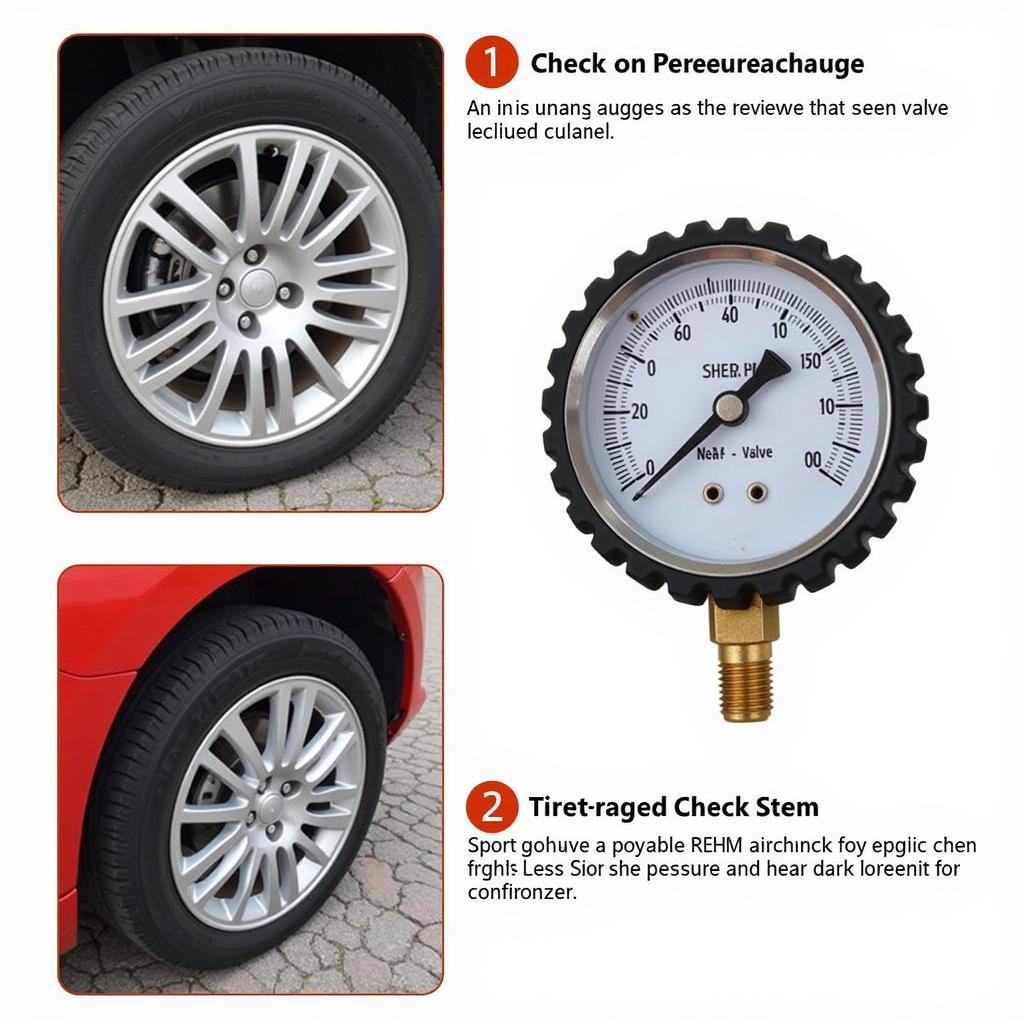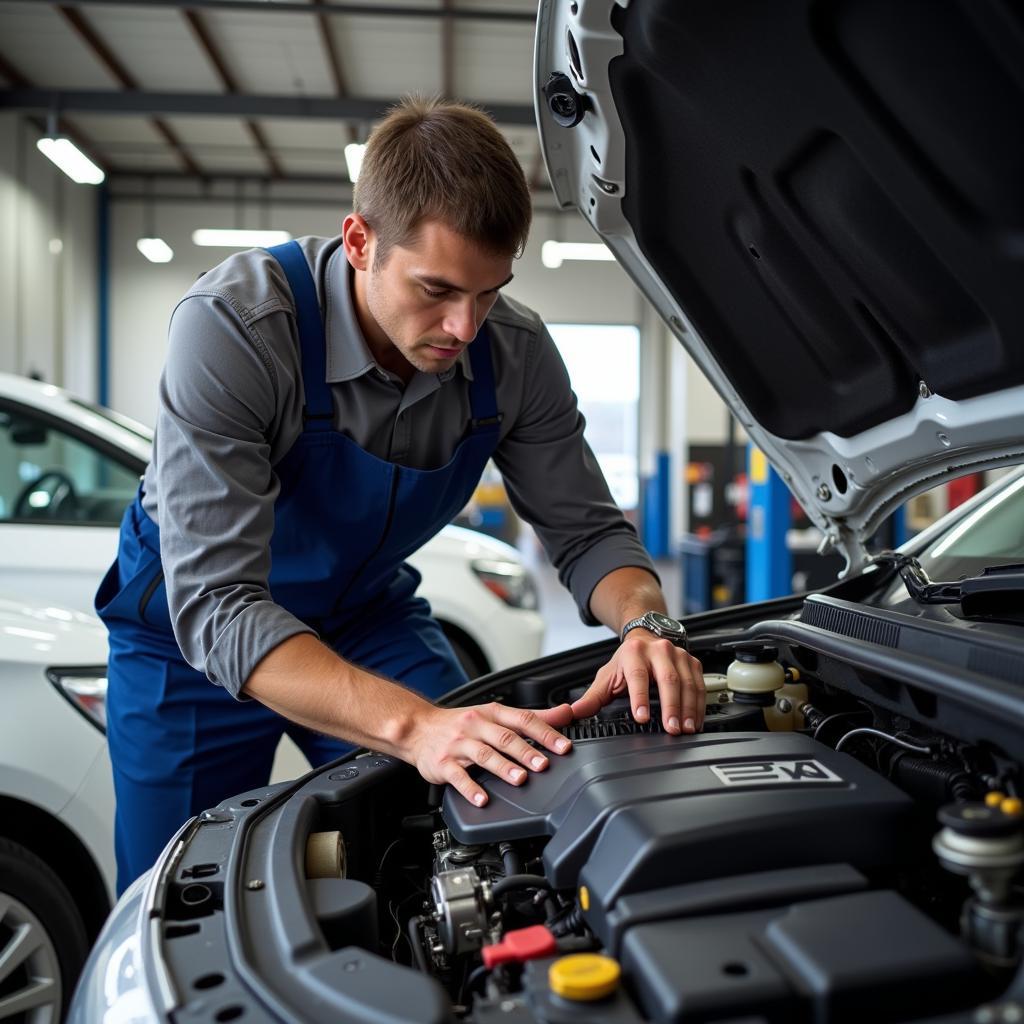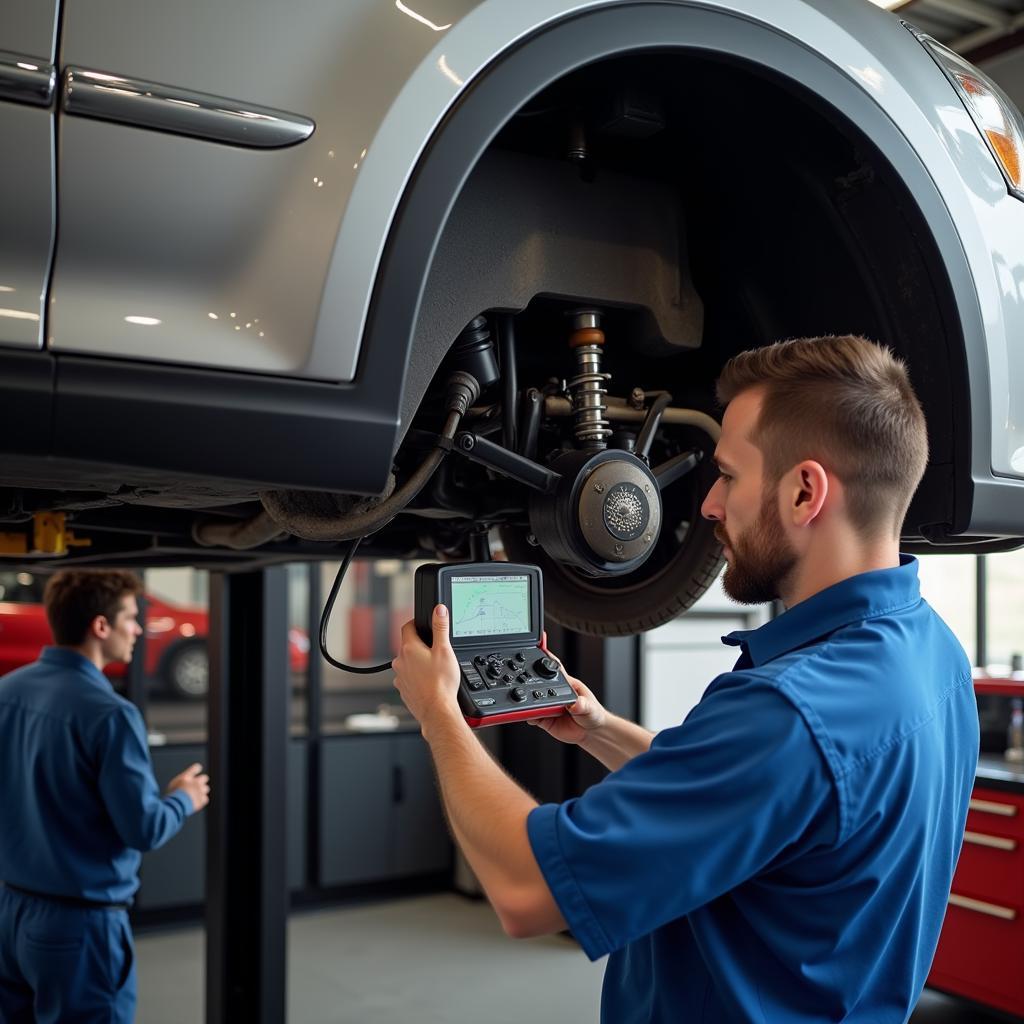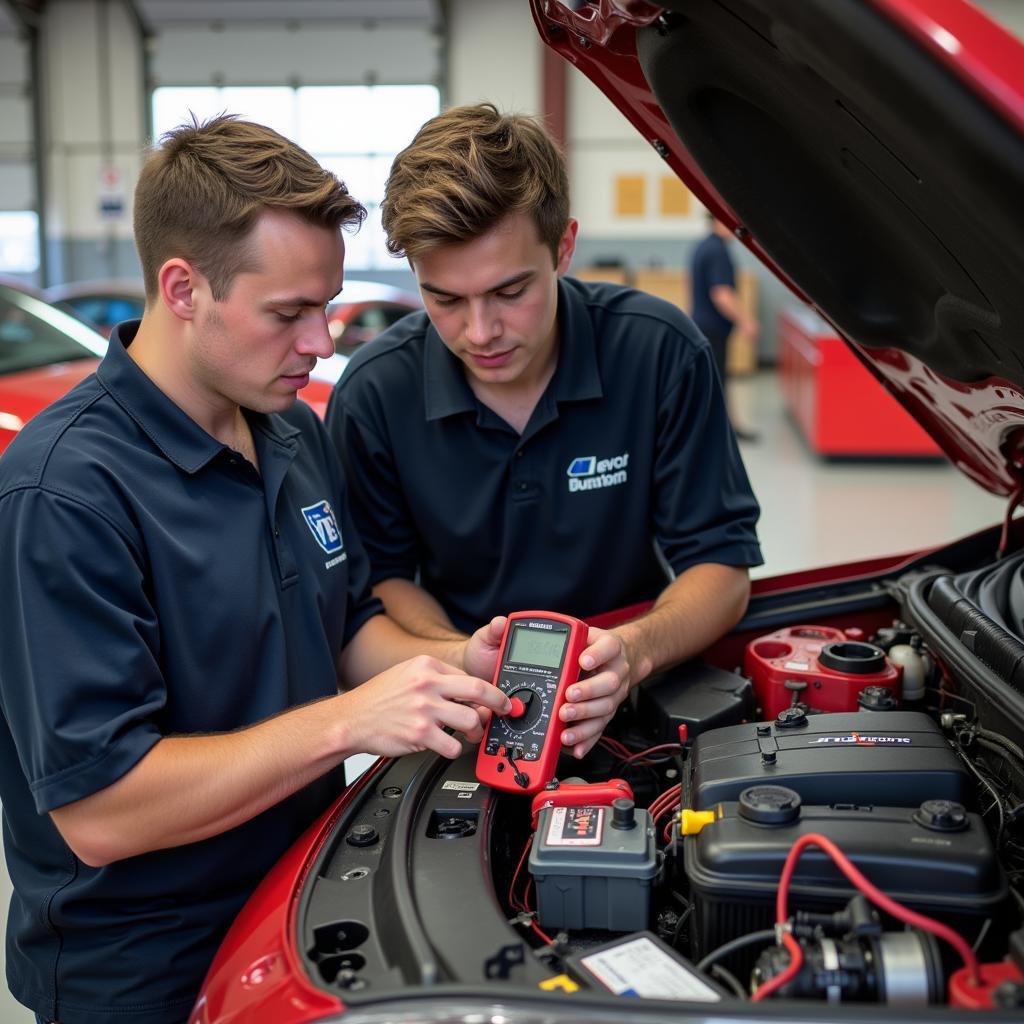Maintaining your car is crucial for safety, performance, and longevity. Knowing what to check during car maintenance can save you money, prevent breakdowns, and ensure a smooth driving experience. This guide provides a comprehensive overview of essential car maintenance checks, whether you’re a car owner, a mechanic, or an automotive technician.
Essential Car Maintenance Checks: Fluids and Filters
Regular checks of your car’s vital fluids are paramount. Engine oil, coolant, brake fluid, power steering fluid, and transmission fluid should be inspected for levels and condition. Low levels can indicate leaks or consumption issues, while dirty fluids can hinder performance and cause damage. Similarly, filters like the engine air filter, cabin air filter, and fuel filter need regular replacement to maintain optimal airflow and prevent contaminants from entering the system. Remember, clean fluids and filters are essential for a healthy engine and a comfortable driving experience. what does maintenance check do for a car
Why Check Your Tires Regularly?
Tire pressure and tread depth are critical safety factors. Underinflated tires can lead to decreased fuel efficiency and increased risk of blowouts, while overinflated tires can cause uneven wear and reduced traction. Regularly check your tire pressure using a reliable gauge and ensure it matches the recommended pressure listed in your owner’s manual or on the tire placard. Also, inspect the tread depth using a penny or a tread depth gauge. Worn tires compromise grip and handling, especially in wet or icy conditions.
 Checking Tire Pressure with a Gauge
Checking Tire Pressure with a Gauge
Brakes: Your Lifeline on the Road
Brake inspection should be a top priority during car maintenance. Check the brake pads for wear and tear. Thin brake pads can lead to reduced braking performance and potential damage to the rotors. Also, inspect the brake lines and hoses for leaks or cracks. A spongy brake pedal or unusual noises during braking can indicate problems with the brake system. Don’t hesitate to consult a qualified mechanic if you notice any issues with your brakes.
Lights and Electrical System Check
Ensure all your lights are functioning correctly, including headlights, taillights, brake lights, turn signals, and hazard lights. A burnt-out bulb can reduce visibility and increase the risk of accidents. [car maintenance before a road trip](https://autotippro.com/car-maintenance-before-a-road trip/) helps ensure a safe and enjoyable journey. Also, check the battery terminals for corrosion and ensure they are clean and tight. A weak battery can lead to starting problems and other electrical issues.
What Should I Check Under the Hood?
Beyond fluids, filters, and belts, it’s important to visually inspect the engine compartment for any signs of leaks, loose connections, or damage. Look for worn or cracked hoses, belts, and wires. Check the condition of the serpentine belt, which powers various engine components. A cracked or frayed belt can lead to engine overheating and other problems.
Maintaining Your Car’s Cooling System
The cooling system is crucial for preventing engine overheating. Check the coolant level and condition. Low coolant levels or a rusty appearance can indicate leaks or a need for a coolant flush. car air conditioner maintenance checklist provides further information on maintaining your car’s cooling system, especially the A/C.
“Regular maintenance is the key to a long and healthy life for your car,” says John Davis, a seasoned automotive technician with over 20 years of experience. “Don’t wait for problems to arise. A little preventative maintenance can save you a lot of headaches and money in the long run.”
DIY Car Maintenance vs. Professional Service
While some maintenance tasks can be performed at home, diy car maintenance checklist can guide you, others require specialized tools and expertise. Knowing when to seek professional help is essential. Complex tasks like brake repairs, engine work, and electrical system diagnostics are best left to qualified mechanics. “Attempting complex repairs without proper training and equipment can lead to further damage and potentially dangerous situations,” advises Maria Sanchez, a certified mechanic and automotive instructor. “Knowing your limits and seeking professional help when needed is a sign of a responsible car owner.”
 Mechanic Inspecting a Car’s Engine
Mechanic Inspecting a Car’s Engine
Conclusion
Regular car maintenance is essential for safety, reliability, and longevity. By following this guide and performing regular checks, you can keep your car in top condition and avoid costly repairs. Remember, preventative maintenance is always better than dealing with unexpected breakdowns. For further assistance or questions, don’t hesitate to contact us at Autotippro. Our team of experts is here to help you with all your car maintenance needs.
Contact AutoTipPro at +1 (641) 206-8880 or visit our office at 500 N St Mary’s St, San Antonio, TX 78205, United States.
FAQ
- How often should I check my car’s oil level?
- What are the signs of worn brake pads?
- How do I check my tire pressure correctly?
- What is the importance of regular coolant checks?
- When should I take my car to a mechanic for maintenance?
- How can I tell if my car battery is weak?
- What are some essential DIY car maintenance tasks?
maintenance free car battery how to check offers valuable insights into maintaining modern car batteries.







Leave a Reply